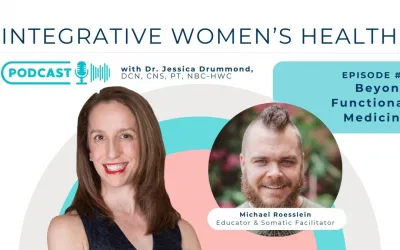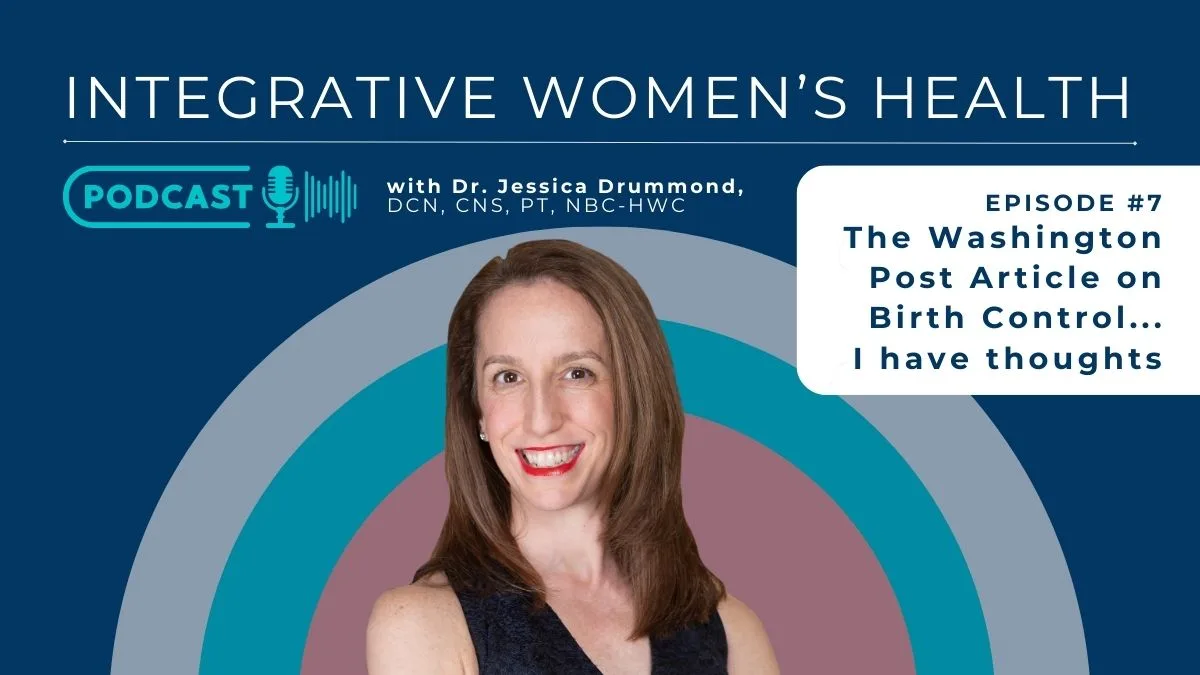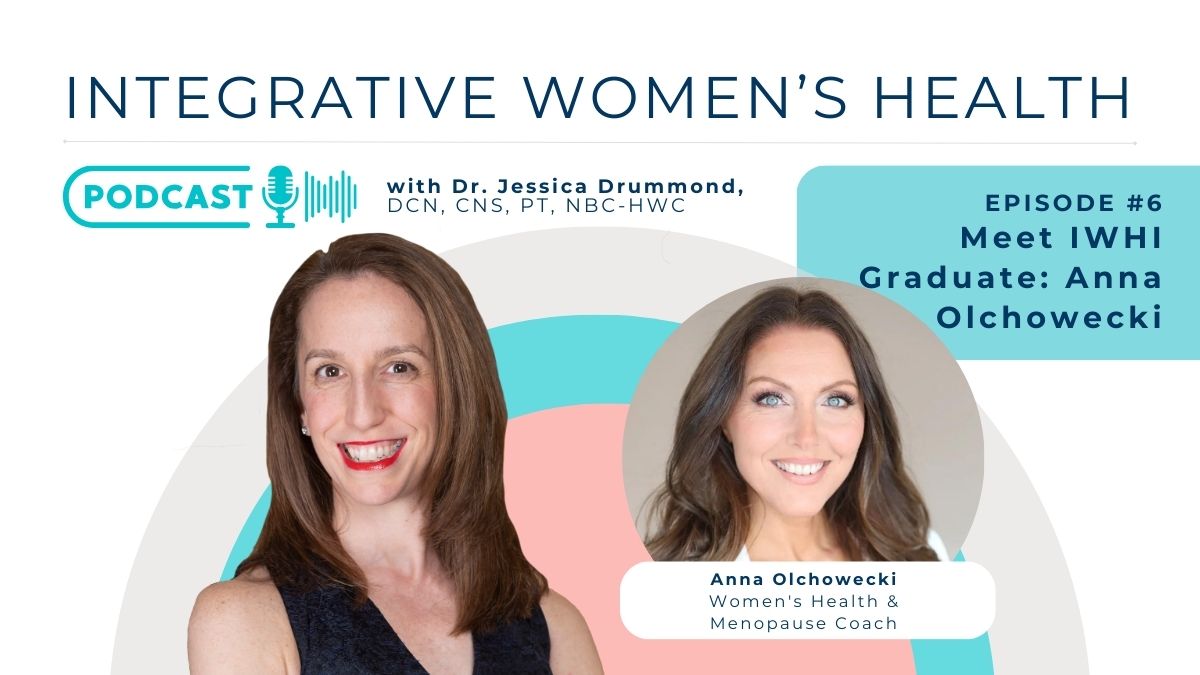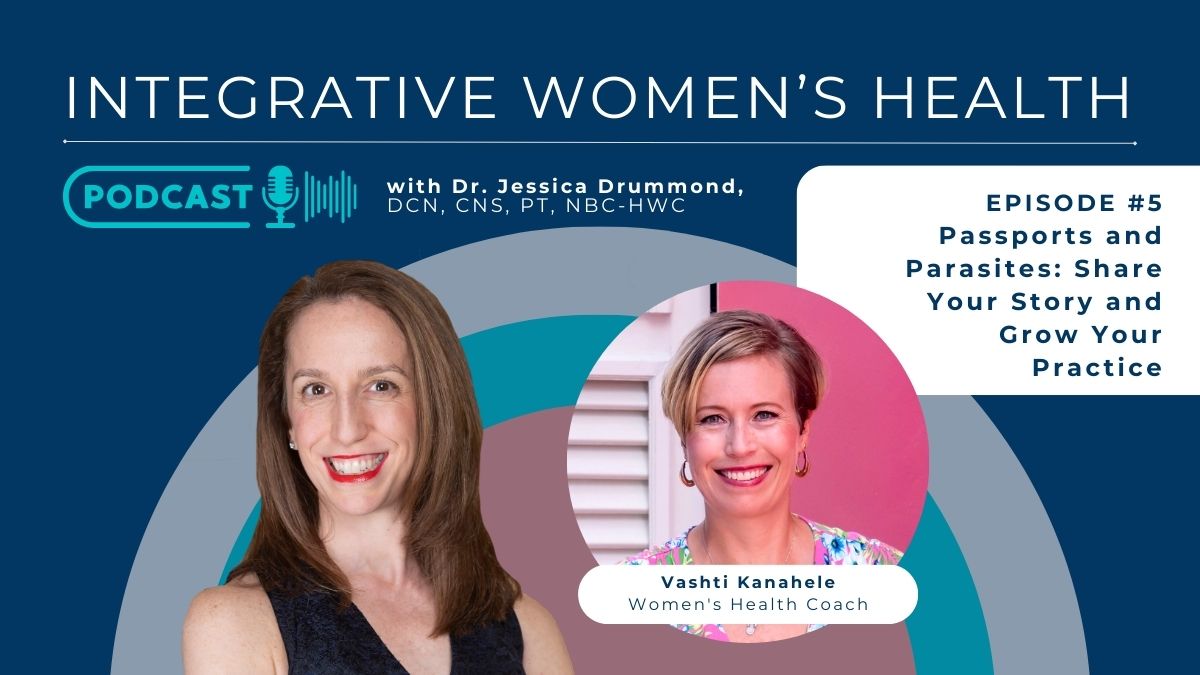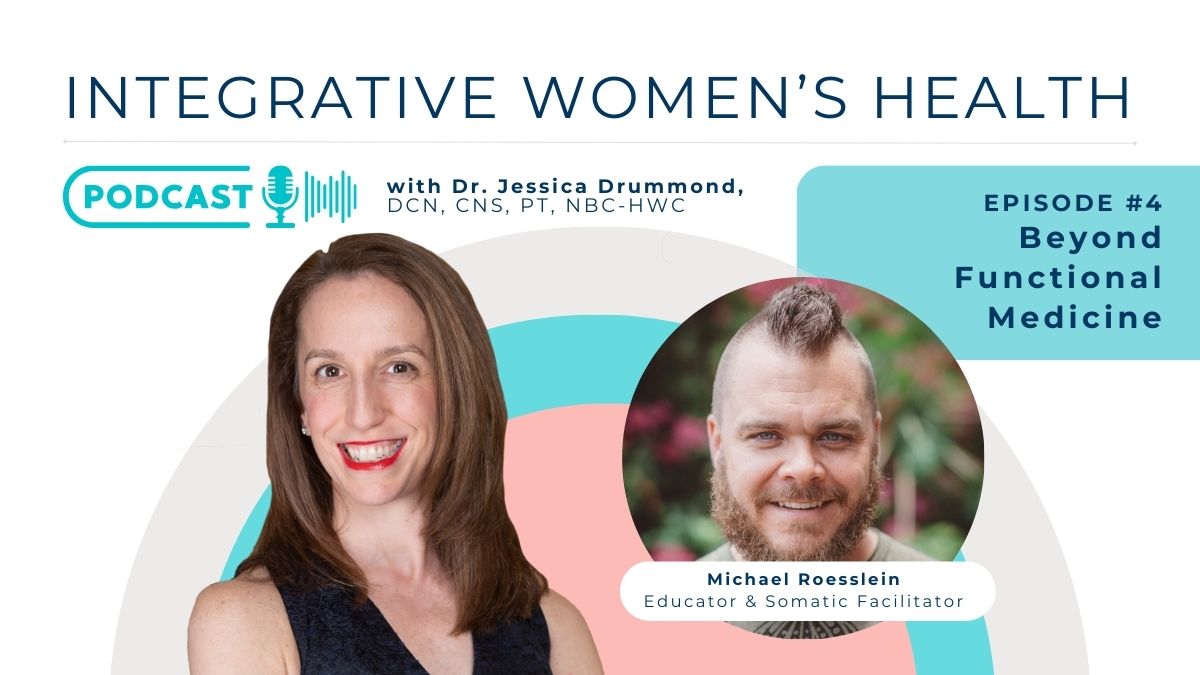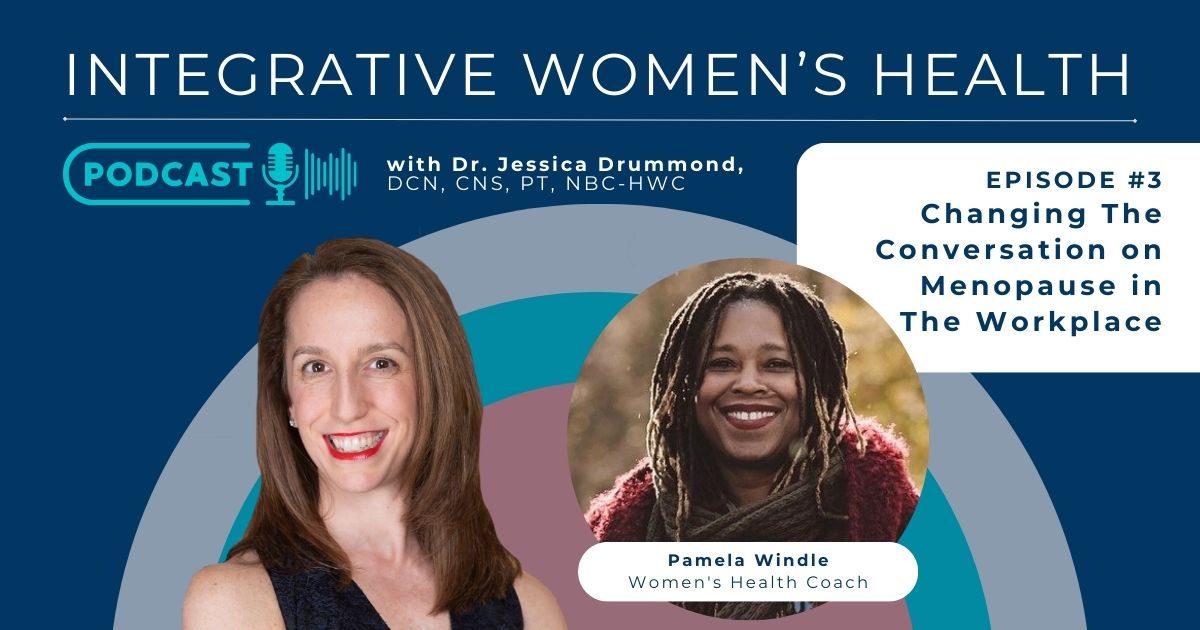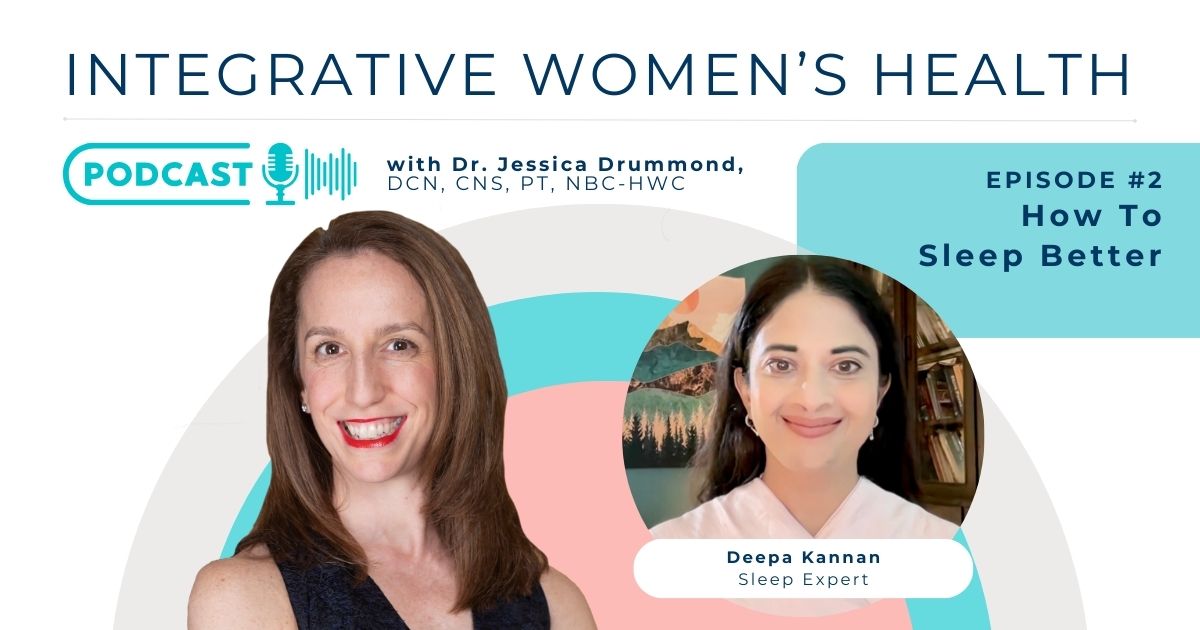What is functional medicine?
Functional medicine is a systems biology based approach that looks for the root causes of diseases and symptoms.
Functional medicine aims to optimize functioning of the body’s cells, systems, and the environmental systems where the person lives.
The goal of a functional medicine perspective is not simply to quiet the symptoms, but to relieve the symptoms at the root cause.
Functional Medicine vs. Functional Nutrition
Technically, functional medicine is only practiced by providers who can prescribe pharmaceutical medications, and functional nutrition is the practice of this perspective by health and wellness professionals who are not licensed to prescribe medications.
Functional medicine is a perspective that can be used by any healthcare or wellness practitioner.
Including but not limited to, physical and occupational therapists, nutritionists, dietitians, health coaches, nurses, nurse practitioners, physicians, gynecologists, physician assistants, acupuncturists, fitness professionals, body workers, mental health therapists, and more, including NBHWC-certified Women’s Health CoachesTM.
Do I have to already be a practitioner to be eligible to enroll in The Women’s Health Coach Certification Program?
Absolutely not! Our Women’s Health CoachTM graduates come from a wide variety of backgrounds.
While many of our graduates were science majors, health care professionals, or are experienced in wellness or fitness professions, we also have students who are just beginning their journey as a practitioner and this is their first certification program.
Many Women’s Health CoachTM graduates started the program with a passion to start a health coaching career because of their own health and healing journey or to change their career completely.
We have successful coaches who began in business, marketing, human resources, or other corporate professions, teaching, childcare, and more!
If you’re not quite ready for the Women’s Health Coach Certification program yet, but you want to learn more about how to apply functional nutrition to your practice, we recommend reading more about our Functional Nutrition Certificate Program.
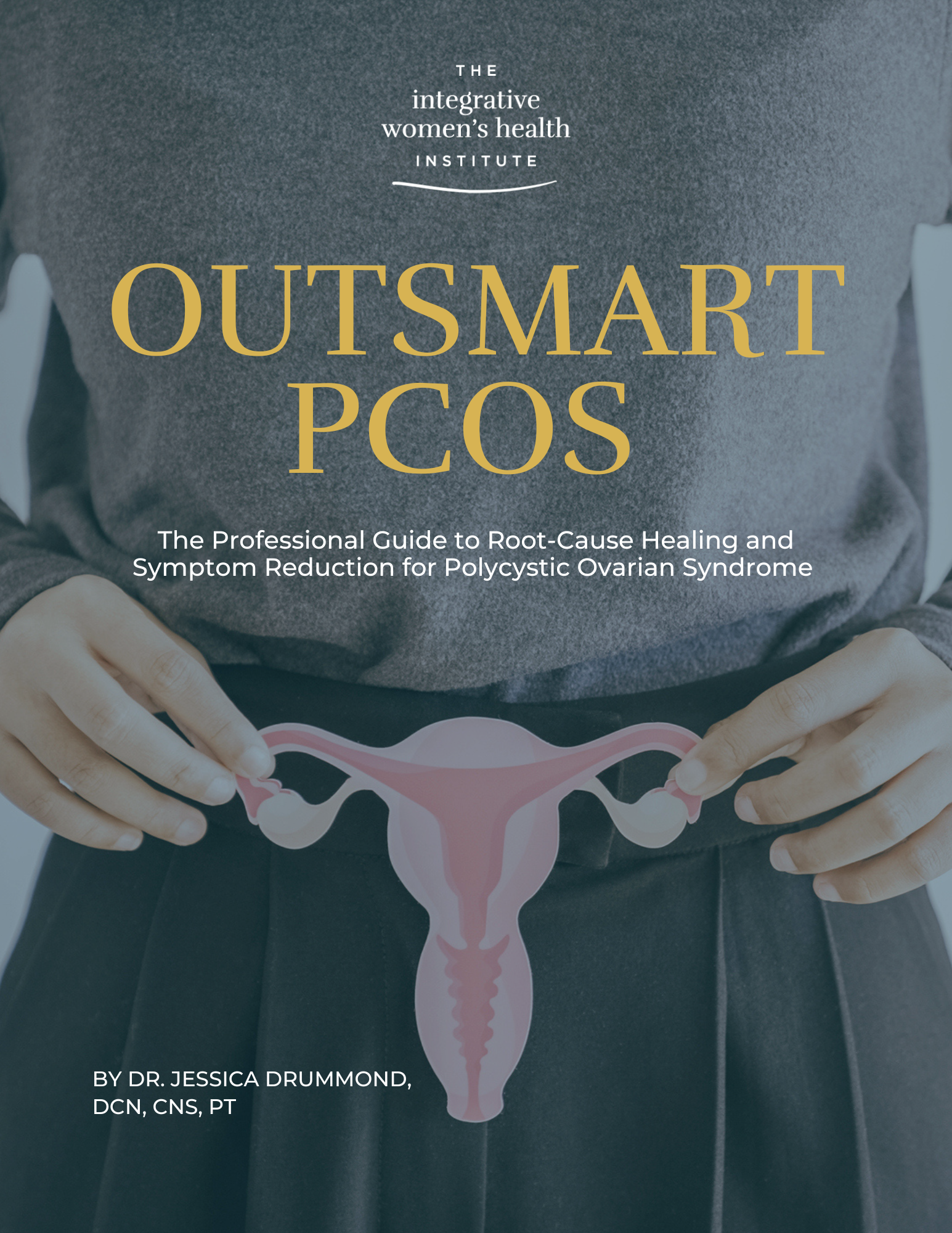
Download your free copy of the Outsmart PCOS eBook!
Strategies to Balance Your Hormones for Optimal Health and Weight Management
What are the top concerns for functional medicine practitioners?
The most common questions asked when someone is considering starting a health coaching business are:
- “Can I run lab tests?”
- “Do I need to understand nutrition and supplements?”
Surprisingly, both of these are just a tiny part (or not used at all) in most health coaching practices. Why?
Do you know whether eating a warm vegetable soup or a bowl of store bought cereal for dinner is the better option for your health? Most people do.
Your client’s more challenging problem, after a bit of personalized nutrition education (which can be done by health coaches or the nutritionists, dietitians, and other healthcare professionals that you work with).
Most clients need A LOT of support with implementing the day-to-day health behavior changes that they will be responsible for to heal.

While healthcare professionals may be deeply knowledgeable about health condition or diseases, people living with that health condition or disease are the true experts on these conditions in their daily lives.
Even if a practitioner knows more about pathophysiology and new clinical research regarding a specific condition, they will never have the expertise that comes with living with health conditions.
People living with health challenges understand their symptoms, impact of treatments, their functional limitations, and how their health problems or challenges impact their relationships.
Thus, everyone has the right to understand their own functional lab data, and should be encouraged to track their health regularly using specific biomarkers.
Which lab data is most relevant and useful to track, what the optimal ranges are of specific biomarkers, and how to improve suboptimal markers, such as markers of nutrient deficiencies, gut dysbiosis, chronic yeast overgrowth, or toxic exposures.
All of this is essential training that functional nutrition practitioners and board-certified health coaches should understand and have the capacity to communicate about with clients and their collaborative health teams.
Who can be a functional medicine professional?
Women’s Health CoachesTM and licensed professionals such as physical therapists and occupational therapists, nutritionists, dietitians, nurses, physician assistants, nurse practitioners, and acupuncturists can all work in functional medicine.
Every functional medicine professional must have a solid understanding of the 11 organ systems of the body.
This is foundational training in The Women’s Health CoachTM Certification Program.
Humans have 11 organ systems.
- The Integumentary System
- Skeletal System
- Muscular System
- Nervous System
- Endocrine System
- Cardiovascular System
- Lymphatic System
- Respiratory System
- Digestive System
- Urinary System
- Reproductive System

As functional nutrition professionals, our goal is to assess which of these systems are most out of balance, and how the imbalances of one system can contribute to imbalances in other systems.
None of these systems exists in a vacuum. All of these systems communicate and connect with the others.
One of the most fascinating and fun parts of working as a Women’s Health CoachTM with your strong training in functional nutrition is that you will begin to see the connectedness of all micro-systems.
Such as the connection between the cell membrane, cellular DNA, and the mitochondria, and the macro environment that your client is living in, such as her home relationships, work, and communities supporting her.
This might sound a little vague, so let me give you an example.
A woman or person who has recently given birth will need additional support working with a Women’s Health CoachTM and in all aspects of life.
Interconnected Areas of Support
- She needs family support to help her take care of her newborn when both are very tired. Including someone to help with meal preparation.
- She will be even more tired if she lacks adequate omega-3 fatty acids in her diet. A newborn needs A LOT of this nutrient in their early days of growth.
- Thus, family members should sometimes prepare nourishing meals for her with added salmon, walnuts, or other great sources of omega-3 fatty acids.
- Feeling the nourishment from the micronutrients in the food prepared by her loving family will help her have the energy to take better care of herself and the new baby.
- When properly supported at home, the new mom will also be able to join a new mom exercise group to expand her supportive macro-environment.
It’s all connected.
Your work as a Women’s Health CoachTM will include nutritional and meal preparation education, but the work of implementing these health behavior changes is even more supportive on a macro level when done skillfully.
How do all organ systems work together?
Not only do all of her micro and macro systems work together, but all of her organ systems work together as well. They all must be nourished at all levels.
In a related example, a postpartum woman who is struggling with depression may lack specific nutrients, such omega-3 fatty acids, amino acids, or B vitamins.
Each of these nutrient deficiencies will affect her neurologic system, impacting direct changes to the brain that can precipitate depression.
Plus, each of these nutrient deficiencies can also impact her hormone levels, these impacts can also contribute to depressive symptoms.
Concurrently, this same postpartum woman may have recently undergone a traumatic birth experience. This trauma can change the composition of the gut microbiome 1.
Improving digestive and gut microbiome health with stress management, prebiotic, probiotic, and post biotic foods and supplements can improve the health of both the digestive and nervous systems.
Let’s discuss how this works in practice by considering a few of the organ systems.
Digestive and Gut Microbiome Health
How does the digestive system work?
During your training to become a Women’s Health CoachTM, you will learn the specifics of how the digestive system works. Learn about everything from the moment someone thinks about eating or smells food, to chewing, breaking down nutrients, absorbing nutrients, and excreting waste products.
Believe it or not, your family may get sick of you talking about poop!
The important thing to understand as you consider becoming a Women’s Health CoachTM is that how your client eats may be even more important that what she eats.
Women are especially vulnerable to fears and insecurities around food and eating, 2.They are at least 4 times more likely to struggle with eating disorders or disordered eating than men, 3.
The emotional aspects of nutrition will drive your client’s ability to eat the food plan that is most healing for her, and that is a key aspect of the skill set of health coaching.
Can you suddenly develop a food intolerance? How effective is food sensitivity testing?
While the validity and reliability of food sensitivity testing is quite low, food sensitivities and intolerances are increasingly common.
Food intolerances affect up to 20% of the population and growing 4. However, testing biomarkers for food intolerances is challenging. Why?
Because people are not only immunologically allergic to food, which is easier to test and more clearly defined, but they are also intolerant to other components of food. Other components includes food additives, FODMAPS, and histamines, etc.
Additionally, people struggle with enzyme deficiencies, and visceral sensitivity amplified by autonomic nervous system sensitivity and challenging emotional relationships with food.
What is the best diet for your gut health?
Ultimately, Women’s Health CoachesTM learn the functional medicine strategies to support a client, collaboratively with their nutrition and healthcare professional team.
There is no one-size-fits-all for any condition, or even any person.
Each client will have evolving needs over time depending on their health, stress levels, cooking skills, financial resources, their food access and more.
Our focus for gut health is diversity, and antimicrobial and anti-inflammatory nourishment.
The strongest gut microbiome is the most diverse.
Revolutionize Your Career:
Become a Board-Certified Women’s Health Coach
In this NBWHC accredited health coach training program, learn the foundations of health coaching, functional nutrition, and integrative health strategies specifically designed for women.
Plus, an entire component is dedicated to business training to teach the best strategies to build a thriving health coaching practice.
What are functional foods?
Most whole foods are functional. Functional foods are foods that offer benefits beyond simply adding nutrients.
- Foods that are antimicrobial, such as oregano, are functional.
- Foods that are anti-inflammatory, such as turmeric, are functional.
- Foods high in protein, such as salmon, that build muscle are functional.
- Foods that boost brain derived neurotrophic factor, which improves cognitive function, such as blueberries and olive oil, are functional.
Equally important to women’s health as the digestive system is the immune system.
Nutritional strategies to support your immune system include adding functional foods that lower inflammation, reduce the risk of autoimmune conditions, and/or optimize gut microbiome diversity as the health of the gut microbiome strongly influences immune health 5.
Diet and the immune system: What is the link?
Many foods have specific impacts on immune function.
Nutrient deficiencies can weaken immune resilience to infections, increase risk of autoimmunity, and even contribute to disease states.
Adding beneficial functional foods, such as foods high in phytonutrients or specific fatty acids, can reduce the risk of chronic illnesses and support recovery from chronic illness.
Examples:
- Prebiotic and probiotic foods, such as foods high in fiber and fermented foods have specific immune boosting properties, such as the improvement of natural killer cell function and the modulation of antiviral activity 6.
- Eating foods high in selenium, prior to and during pregnancy can reduce the risk of postpartum thyroiditis, 7.
- Eating 10g more daily of whole grain fiber is associated with a 10% reduction in risk for colon cancer 8.
Ultimately, Women’s Health CoachesTM support their clients with skilled coaching to implement day-to-day, healthy, lifestyle medicine-informed behaviors that support the optimal health of all 11 organ systems of the body.
Adding functional foods, nutrient dense foods, and simple, healthy, and delicious food is an important piece of the puzzle for supporting optimal women’s health.
References:
1. Kelly, L. S., Apple, C. G., Gharaibeh, R., Pons, E. E., Thompson, C. W., Kannan, K. B., Darden, D. B., Efron, P. A., Thomas, R. M., & Mohr, A. M. (2021). Stress-related changes in the gut microbiome after trauma. The journal of trauma and acute care surgery, 91(1), 192–199. https://doi.org/10.1097/TA.0000000000003209
2. Qian, J., Hu, Q., Wan, Y., Li, T., Wu, M., Ren, Z., & Yu, D. (2013). Prevalence of eating disorders in the general population: a systematic review. Shanghai archives of psychiatry, 25(4), 212–223. https://doi.org/10.3969/j.issn.1002-0829.2013.04.003
3. Galmiche, M., Déchelotte, P., Lambert, G., & Tavolacci, M. P. (2019). Prevalence of eating disorders over the 2000-2018 period: a systematic literature review. The American journal of clinical nutrition, 109(5), 1402–1413. https://doi.org/10.1093/ajcn/nqy342
4. Tuck, C. J., Biesiekierski, J. R., Schmid-Grendelmeier, P., & Pohl, D. (2019). Food Intolerances. Nutrients, 11(7), 1684. https://doi.org/10.3390/nu11071684
5. López-Varela, S., González-Gross, M., & Marcos, A. (2002). Functional foods and the immune system: a review. European journal of clinical nutrition, 56 Suppl 3, S29–S33. https://doi.org/10.1038/sj.ejcn.1601481
6. Tolulope Joshua Ashaolu. (2020) Immune boosting functional foods and their mechanisms: A critical evaluation of probiotics and prebiotics, Biomedicine & Pharmacotherapy, 130.
7. Negro, R., Greco, G., Mangieri, T., Pezzarossa, A., Dazzi, D., & Hassan, H. (2007). The influence of selenium supplementation on postpartum thyroid status in pregnant women with thyroid peroxidase autoantibodies. The Journal of clinical endocrinology and metabolism, 92(4), 1263–1268. https://doi.org/10.1210/jc.2006-1821
8. Key, T. J., Bradbury, K. E., Perez-Cornago, A., Sinha, R., Tsilidis, K. K., & Tsugane, S. (2020). Diet, nutrition, and cancer risk: what do we know and what is the way forward?. BMJ (Clinical research ed.), 368, m511. https://doi.org/10.1136/bmj.m511
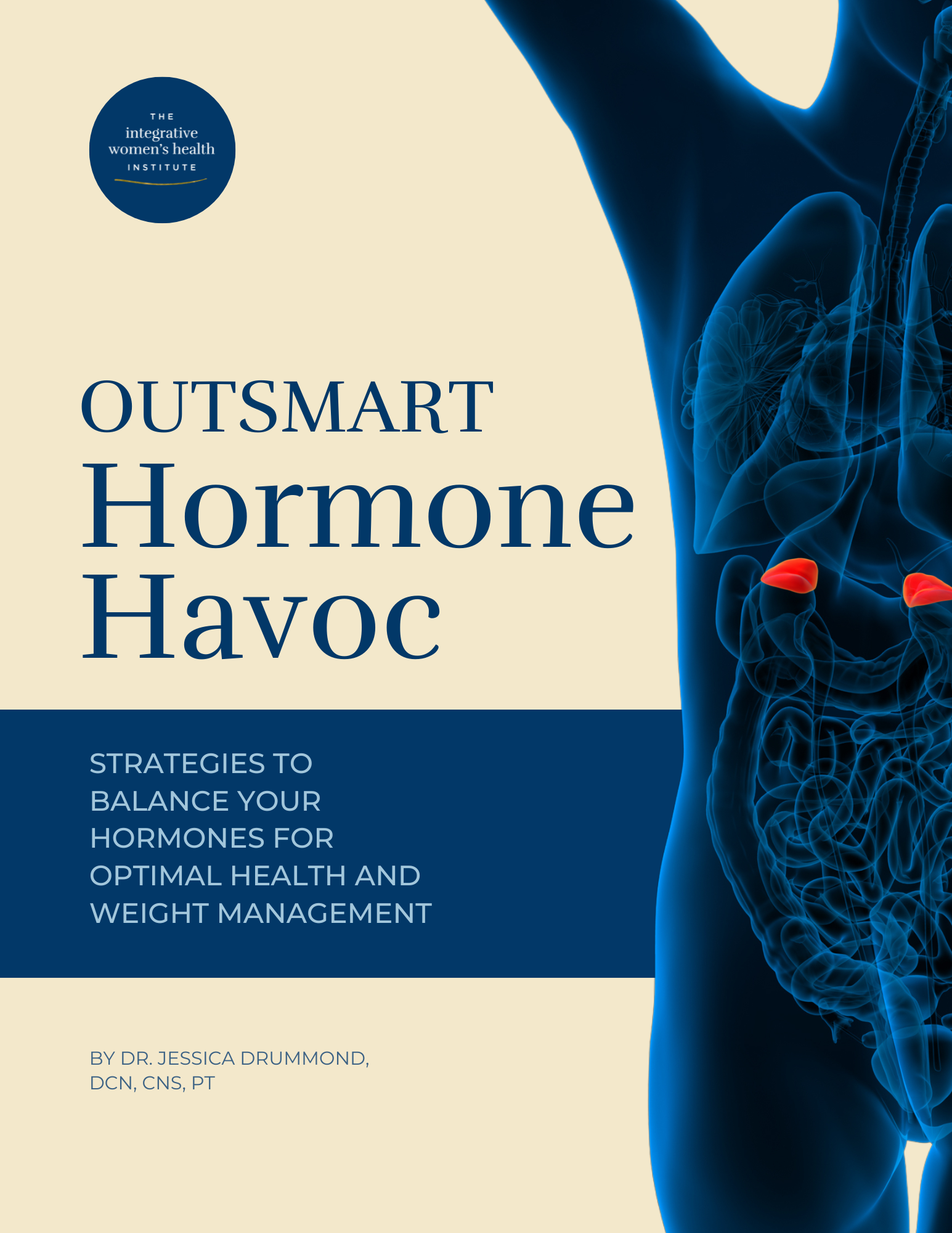
Download your free copy of the Outsmart Hormone Havoc eBook!
Strategies to Balance Your Hormones for Optimal Health and Weight Management

Founder & CEO
Dr. Jessica Drummond,
DCN, CNS, PT, NBC-HWC
Dr. Jessica Drummond, DCN, CNS, PT, NBC-HWC, is the founder and CEO of The Integrative Women’s Health Institute, The Outsmart Endo Health Coaching Program, and the creator of the Women's Health Coach Certification.
She is passionate about caring for and empowering people who struggle with women’s and pelvic health concerns. She is equally passionate about educating and supporting clinicians and wellness professionals in confidently and safely using integrative tools to transform women’s and pelvic healthcare.
Dr. Drummond has two decades of clinical experience as a licensed physical therapist, licensed clinical nutritionist, and board certified health coach working with women with pelvic pain, including endometriosis, vulvodynia, and bladder pain syndrome. She brings a unique, conservative, and integrative approach to supporting women to overcome hormonal imbalances, and chronic pain conditions.
She is a sought after international speaker on topics such as integrative pelvic pain management, natural fertility options, optimal hormone health, menopause, and female athlete nutrition. Dr. Drummond was educated at the University of Virginia, Emory University, Duke Integrative Medicine, and Maryland University of Integrative Health.
Read Related Posts from The Integrative Women's Health Institute Blog:
Download The WHC Program Guide!
Enter your information to download your copy The Women’s Health Coach Certification Program guide.

Download your free copy of the Outsmart Hormone Havoc eBook!
Strategies to Balance Your Hormones for Optimal Health and Weight Management

Download your free copy of the Outsmart PCOS eBook!




